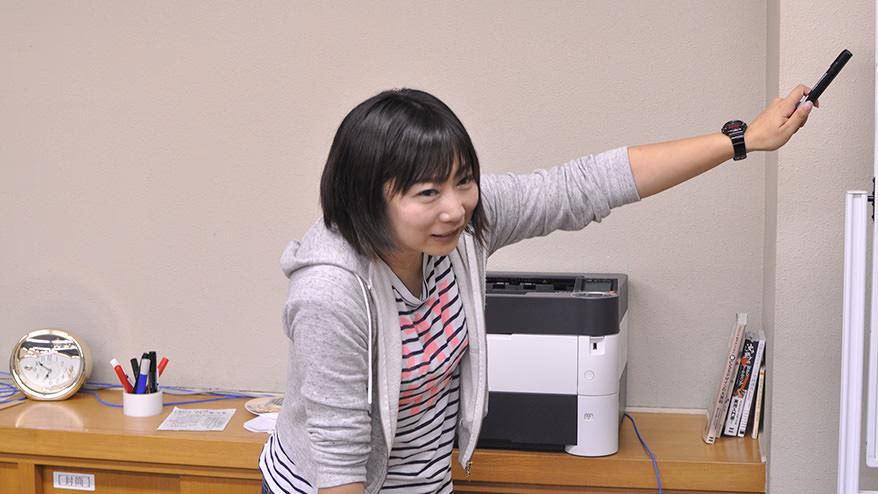Hello, this is Ryoko Dojo from the operations team.
Recently, I had the honor of being a lecturer at the "Kamiyama Monosasu School" held by Monosasu.
Kamiyama Monosasu Juku is currently in its second term and mainly teaches coding and writing, but this time an operations course teaching how to operate a website will also be included in the curriculum.
This was my first experience as an instructor, so I racked my brains trying to think of the best way to teach people how to operate a website, and through trial and error, my team and I created a curriculum for operating the website.
This time, I would like to talk about the process of creating this operational curriculum and what I have realized.
How can I teach them how to operate it?
The most difficult thing about teaching at Kamiyama Monosasu Juku this time was figuring out how to teach students how to operate the website in the first place.
Normally, when the operations team teaches new employees how to do their jobs, we first explain the case and then have them remember as they go about their work. So when it came to creating a curriculum, I didn't know where to start.
The content of the course that was initially envisioned was something like stoic training, or simply an extension of actual work, such as having the participants actually check pages to give them a real feel for how difficult the process is, and having them make edits to an actual site.
However, we concluded that this would only give people a sense of the difficult aspects of operation, and would not teach them at all what they need to do to actually proceed with the actual operation.
First of all, what exactly is needed for operations? How do you progress with projects every day? After thinking about these questions, I came to the conclusion that the important things for smooth operations are, in fact, the various things we do every day without even thinking about it, so I started by taking stock of the operations work.
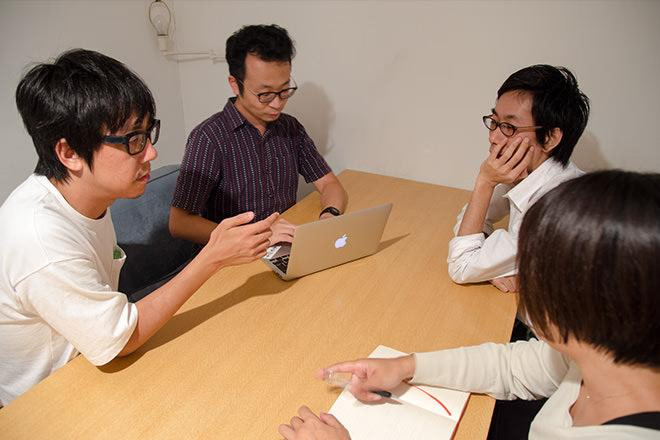
Team members taking stock of operational aspects
This includes the folder structure of the shared server, how to manage files, how to adjust daily schedules, and how to manage issues that arise in small batches.
Of course, there are no books or websites to refer to, and the operations team does not have a manual either.
These are things that we do every day without even thinking about them, so they all felt so obvious to me, and I had a hard time figuring out what was necessary to operate the system.
After we had extracted most of the elements necessary for proceeding with operations, we started talking about what operational capabilities are in the first place.
Thinking about it now, this was the thing that bothered me the most.
If the important things in cooking are the ingredients, the steps, and the recipe, then what about operation?
Why do you say that operation is important in the first place?
If you could teach a friend who knows nothing about investments to manage their own investments in a week, what would you teach them?
We looked at operations from various angles, such as the above.
As a result, the "three important elements for operation" are:
- On-time delivery
- Helpful suggestions
- Stable quality
The four skills needed to achieve this are
- Understanding the Site and Clients
- Building the right workflow
- Progress Management
- Quality Control
I came to the conclusion that this is the case.
Finally, the Monosus-specific operational curriculum has been completed.
Once we have decided on the "three elements important for operations" and "four skills" that will form the pillars of operations, we then consider how much to break these down, how to teach them within the limited time of one week, and what kind of course flow we should have to enable students to actually run operations.
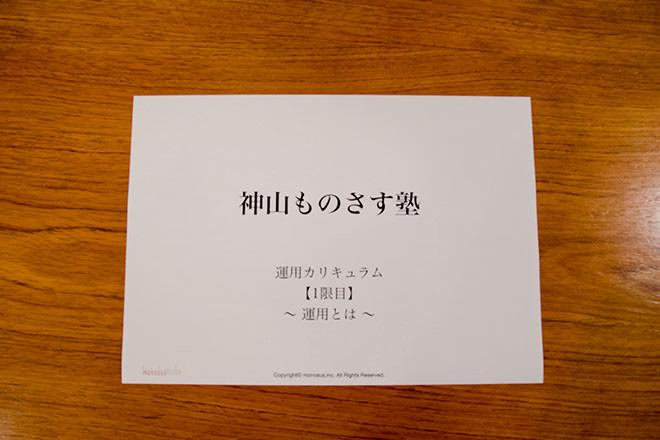
The completed operational curriculum
First of all, before talking about the specifics of operations, we incorporated a mindset component into the curriculum, such as why operations are important and the mindset needed to carry out operations.
The world is overflowing with design and coding know-how, but there are almost no places that teach you how to operate a site, so as a result, there are few people who know how to operate a site efficiently, making operation skills valuable.
He also explained that what happens after the website is created is crucial in achieving customers' goals, and that it is important to think about what to do when the website is in operation in order to achieve that goal.
Also, just as you cannot run a restaurant by being able to cook delicious food, you cannot run a website by being able to design and code alone.
In order to operate a website, non-technical know-how is essential.
The know-how part is the subdivision and practical application of the "four skills" required to realize the "three elements important for operations" mentioned above.
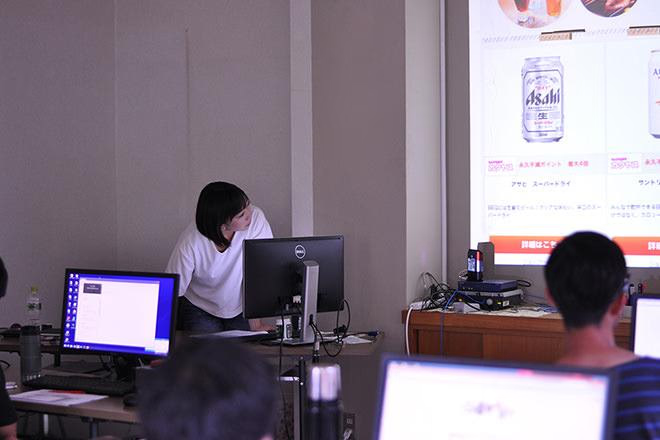
Scenes from class
Points to check on the website and questions to ask customers in order to understand the site and the client.
From the interviews, we learned how to build a workflow for efficient operation, how to create task management tables and schedules for progress management, and tips for progress management.
In addition, we are preparing checklists for quality control, etc.
In the actual classes, we mixed lectures and worksheets so that students could learn by doing.
For the workshop, participants were divided into teams and asked to simulate interviews with customers, launch projects, and implement improvement proposals based on website analysis data.
All the teams worked hard and proactively on the project, and it was interesting to see each team's unique perspective.
It was also impressive to see how roles were naturally divided within the team, with some members taking on leadership roles and others working quietly on preparing materials.
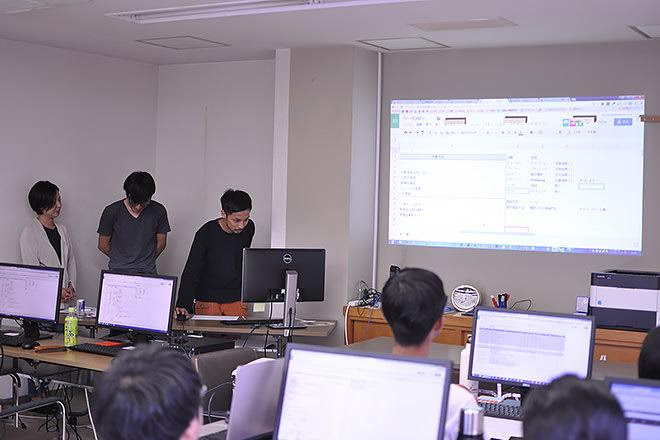
Students presenting their work
lastly
This time, through the creation of the operations curriculum, we thoroughly considered what is needed to operate the site, and as a result, we were able to rediscover that the things we had been doing as a matter of course were in fact what created value in operations.
We were also able to identify the "three important elements for operation" that should be the pillars of running the site, as well as the "four skills" to achieve them.
If I can be conscious of what is important in my daily work, I think I will be able to feel more motivated in my operations work than ever before, and the quality of my work will improve by focusing on the key points. Also, when new members join in the future, I will be able to teach them how to operate efficiently.
As this was the first time we had created a curriculum, we didn't know what the correct answer was, so we had to start over again and again. We also had online meetings every day until the last train, including with the school principal, Kurihara, who had already arrived in Kamiyama. The creation process was extremely difficult.
However, I now believe that creating the operations curriculum was a good opportunity to take a fresh look at site operations, and it was a valuable experience and asset for both myself and the operations team.
